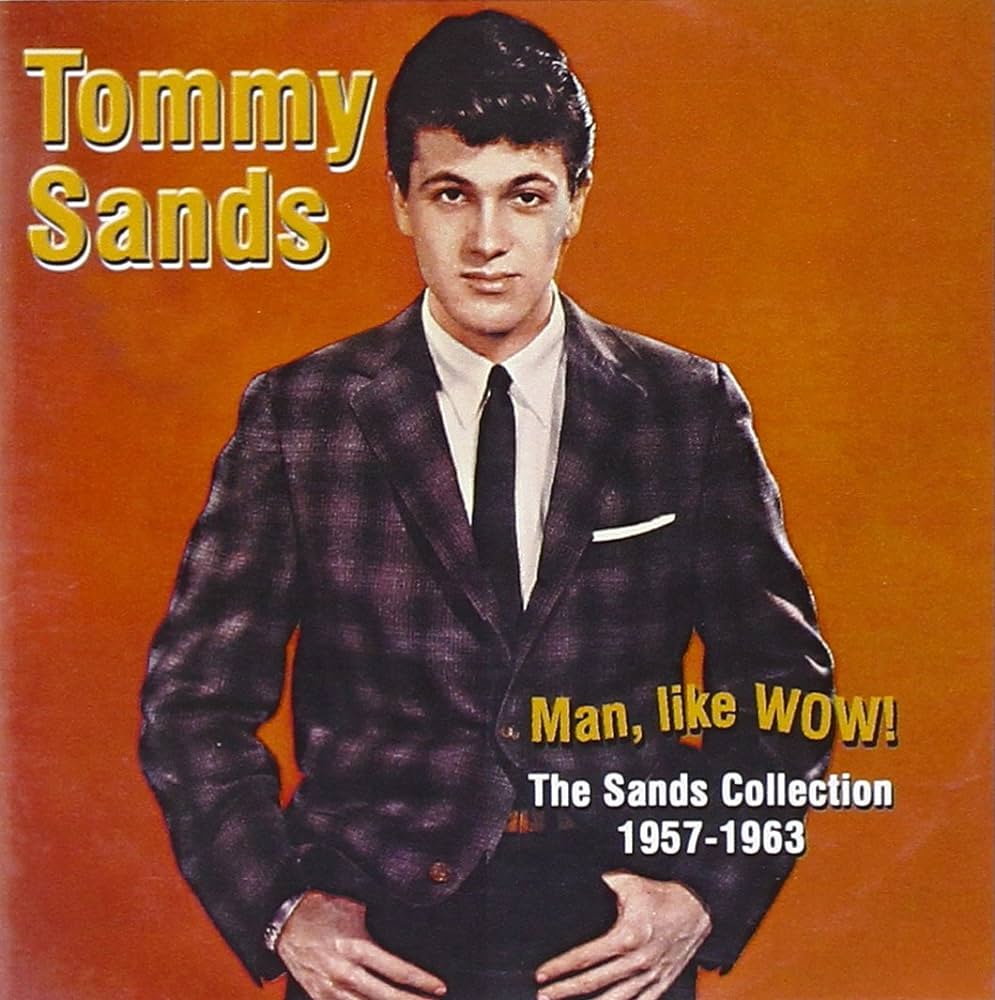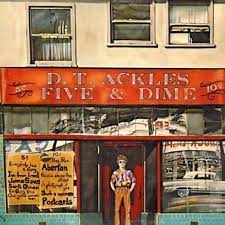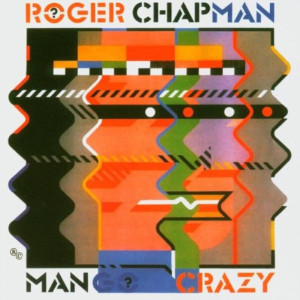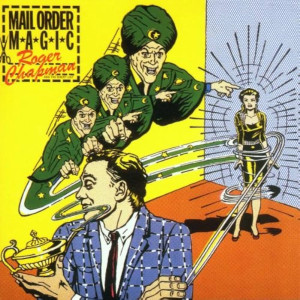 There is a huge market these days for obscure music. Once only available on vinyl, sometimes only on expensive import copies, now remastered and attractively compiled and packaged, this stuff is finding release by caring archival labels around the world. England’s Mystic Records and antipodean Raven Records are two of the absolute best at this retrieval business. Green Man Review has been fortunate to receive many of their discs, and the four under consideration here are sterling examples of what they do best.
There is a huge market these days for obscure music. Once only available on vinyl, sometimes only on expensive import copies, now remastered and attractively compiled and packaged, this stuff is finding release by caring archival labels around the world. England’s Mystic Records and antipodean Raven Records are two of the absolute best at this retrieval business. Green Man Review has been fortunate to receive many of their discs, and the four under consideration here are sterling examples of what they do best.
The oldest and maybe the most obscure of these sets is Tommy Sands’ Man, Like WOW!. I must confess that, that was pretty much my reaction upon opening the package which held this disc. Although, my reading was much more like, “Maaan…like…wow?” A cursory listen and a browse through Raven’s always excellent liner notes (by Brian de Courcy) showed that Raven was right to dig this stuff up from whatever musical cemetery it was buried in.
Never a cutting edge rockabilly star, and yet not a pure crooner either, Sands walked a thin line between generations; he was safe enough for parents and sexy enough for the girls. His pictures show a handsome young lad, not unlike Fabian or Dion with greased back hair and a neat tie or v-necked sweater. The music? Well, it’s early white middle of the road rock and roll. Commercial, safe, but not bad at all. Electric guitar is front and centre, and that’s not a bad thing, considering the orchestral sounds of some other 50s “rockers.” “The Worrying Kind” even has a Gene Vincent rhythm about it. Songs are written by Faron Young, Spade Cooley, Bobby Hart and Paul Anka, among others, including Tommy Sands himself. Sands even had his own band, with the legendary Hal Blaine on drums and guitarist Scotty Turner providing the hot licks. As Sands’ career moved on he made movies, did guest spots in a few TV shows and developed into more of a big band singer like his father-in-law Frank Sinatra. Yep, he was married for a while to Nancy! This anthology presents all aspects of Sands’ career (33 tunes in all), but is nicely weighted with rocking tracks. A pleasant surprise, and a nice little package from Raven.
Raven’s second selection is the long unavailable 1973 album from composer and singer David Ackles. Born in 1937 to a show-business family, Ackles began performing in vaudeville when he was 4 years old. He did graduate work in film at USC, and his songs are n ot the standard singer songwriter fare. Heavily orchestrated and fronted by his dramatic (almost Broadway-esque) delivery, Ackles’ music is an acquired taste. But that’s what these labels do! They re-issue music that isn’t in the mainstream. Rolling Stone called Ackles songs “brooding, sometimes Biblical…” Phil Collins chose an Ackles’ song to take with him on the British radio programme Desert Island Discs and Elton John once described himself as “the number one David Ackles fan.” More recently Elvis Costello declared himself a fan.
ot the standard singer songwriter fare. Heavily orchestrated and fronted by his dramatic (almost Broadway-esque) delivery, Ackles’ music is an acquired taste. But that’s what these labels do! They re-issue music that isn’t in the mainstream. Rolling Stone called Ackles songs “brooding, sometimes Biblical…” Phil Collins chose an Ackles’ song to take with him on the British radio programme Desert Island Discs and Elton John once described himself as “the number one David Ackles fan.” More recently Elvis Costello declared himself a fan.
Listening to Five & Dime it takes a little imagination to understand the attraction. “Everybody Has a Story” and “I’ve Been Loved” are models of the Ackles’ style. Not guitar, bass and drums, but rather … the orchestra is Ackles’ instrument, more so even than Randy Newman (who always has his own quirky piano up front). These songs are like out-takes from a show. You wonder what the rest of the story is. “Surf’s Down” is the Beach Boys turned inside out. Ackles affects a thin “Mike Love” delivery backed by a choir of “aahs” (provided by Jan & Dean’s Dean Torrence!). It’s spectacular, and even funny in an ironic way. “I’ll even buy some beer and use my own ID,” indeed. According to the history books, this was Ackles’ most personal and scaled down album. He recorded it at home. Must have been some place.
The album is presented in its entirety, and in place of out-takes, Raven filled the CD with what they call “Ackles Rendered.” Seven Ackles compositions done by other artists! It includes Spooky Tooth’s “Down River” (the song that was Phil Collins’s favourite), “Road to Cairo” by Brian Auger & the Trinity with Julie  Driscoll, Martin Carthy’s “His Name Is Andrew,” and the Hollies’ version of “Down River” and three more. These renditions are helpful as they emphasize Ackles’ gift for melody and structure. This is an idea for bonus tracks that I’d like to see used more frequently. Rather than simply filling up the space with throwaways, it’s much more instructive to hear what others found appealing in someone’s work. Bravo, Raven.
Driscoll, Martin Carthy’s “His Name Is Andrew,” and the Hollies’ version of “Down River” and three more. These renditions are helpful as they emphasize Ackles’ gift for melody and structure. This is an idea for bonus tracks that I’d like to see used more frequently. Rather than simply filling up the space with throwaways, it’s much more instructive to hear what others found appealing in someone’s work. Bravo, Raven.
British label Mystic Records has dedicated itself to making the complete works of Roger Chapman available. These are albums that appeared on obscure European labels. I remember finding a copy of Mail Order Magic in a flea market for $1. I couldn’t believe it. I had never even heard of this album. It was an English import that probably would have set me back $20 if I’d ordered it from my local record shop … but here it was in mint condition for only a dollar! I didn’t even have a turntable at the time, but I bought it anyway. Now, here it is, digitized, remastered and with five bonus tracks!
Mail Order Magic and Mango Crazy are both filled with more blues based rock from the legendary British rocker Roger Chapman. After Family, Chapman and co-writer Charlie Whitney had formed Streetwalkers. They lasted a couple of albums, and then Chapman and Whitney parted ways. Chapman released the Chappo album and cut a swath through the earwax of an audience that had virtually forgotten him. He found a strong fan base in Germany, where he continues to prosper today. These newest reissues could be said to be more of the  same, a logical progression from Chappo and Live in Hamburg. Chappo’s warbly, but incredibly potent vocals are just part of an all out assault on the senses. This band, called The Short List, wield musical power equal to The Clash at their peak. Guitarist Geoff Whitehorn was on board, assisting in the songwriting. He and Chappo were creating songs like “He Was She Was” and “Ducking Down” while Chapman, on his own, crafted “Right To Go” (which features horns and chunky piano chords) and the title track “Mail Order Magic.” He also collaborated with keyboardist Poli Palmer on “Barman” and “Higher Ground.”
same, a logical progression from Chappo and Live in Hamburg. Chappo’s warbly, but incredibly potent vocals are just part of an all out assault on the senses. This band, called The Short List, wield musical power equal to The Clash at their peak. Guitarist Geoff Whitehorn was on board, assisting in the songwriting. He and Chappo were creating songs like “He Was She Was” and “Ducking Down” while Chapman, on his own, crafted “Right To Go” (which features horns and chunky piano chords) and the title track “Mail Order Magic.” He also collaborated with keyboardist Poli Palmer on “Barman” and “Higher Ground.”
Mango Crazy saw a change in personnel, but the aural assault continued. Whitehorn, on guitar, was joined by Steve Simpson playing slide guitar (especially noticed on “Blues Breaker”), Boz Burrell played bass. Poli Palmer is present in the liner notes and songwriting credits, but absent from the cast list. The songs are strong, but typically Chappo-esque, and who would expect otherwise? There’s a little more group vocalising on the disc, an some interesting musical experimentation. And that’s the beauty of the re-issue concept. These artists, all three, were experimenters.
Tommy Sands pushed the envelope in the late 50s and early 60s, but we’re so far removed from that era that it’s easy to look upon his efforts as wimpy. But placed next to somebody like Pat Boone you’ll see that Mr. Sands could really rock. David Ackles took his experimentation in a different direction. While acoustic guitars were the instrument of choice among 70’s singer-songwriters, Ackles played the orchestra! Talk about a brave direction. And Chappo has been pushing his own envelope for as long as he’s been recording. There is nobody, and I mean NOBODY else like him! We owe a debt of gratitude to labels like Raven and Mystic for giving new life to this exciting music.
(Raven Records, 2004, originally released 1973)
Mystic Records, 2004, originally released 1983)
(Mystic Records, 2004, originally released 1980)
(Raven Records, 2004, originally released 1957-1963)
